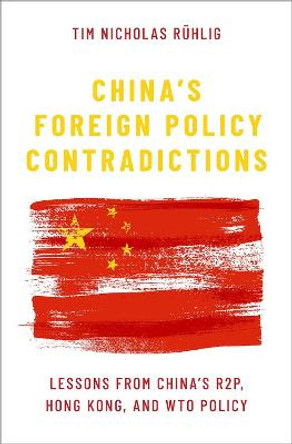Description
Author Bo Kong reveals how China's international petroleum policy is shaped by the cogovernance of the country's petroleum sector by its government and national oil companies, whose interests are at cross purposes with each other.
This exhaustive treatment of China's international petroleum policy examines the cogovernance of China's petroleum sector by its government and national oil companies, as they work at loggerheads with each other to shape such key policies as overseas investment, domestic price caps, and import controls in the face their country's exploding demand for foreign oil. Imported oil already accounts half of China's total consumption and is forecast to increase to 80 percent by 2030.
China's International Petroleum Policy focuses on six major issues: the evolution of China's petroleum governance regime, the making of China's international petroleum policy, the international expansion of China's national oil companies, the challenges confronting Chinese oil companies on the international petroleum chessboard, Beijing's petroleum diplomacy, and the implications of China's international petroleum policy. Each chapter describes the historical and institutional context of a particular issue, the key players, and the structures and processes through which policy is developed and implemented.
- Draws on original documents published by the Chinese government and Chinese national oil companies, together with interviews with government officials, industry analysts, and experts in China, the United States, and Africa
- Includes data-rich appendices, a chronology, and a bilingual bibliography
"This thoughtful book provides a detailed analysis of recent developments in China's petroleum sector. It shows, on the one hand, that China's government has lost effective control over the sector and yet, on the other hand, that most of our fears concerning the overseas activities of Chinese oil companies are unfounded." -- Philip Andrews-Speed, Professor of Energy Policy and Director of the Centre for Energy, Petroleum and Mineral Law and Policy "China recently passed a sobering milestone, surpassing Japan in oil imports to rank second only to the United States in that key measure of energy security. This new order raises questions about how China's complex politics shape that nation's new global role. Bo Kong has constructed an important, rigorous, and balanced analysis of China's 'go out' international petroleum policy, and in the process provided scholars and policy makers with profound insight into China's system of governance." -- William Chandler, President of Transition Energy, co-founder of DEED China, and adjunct senior associate Energy and Climate Program at the Carnegie Endowment for International Peace "China's International Petroleum Policy is a superb book. It addresses not only the details of China's energy problems and Beijing's going global policy, it also speaks directly to the issues of governance and the emerging policy-making system. Significantly, this book describes the scope of autonomy that China's emerging multinational corporations enjoy and some of the implications of that autonomy." -- David M. Lampton, Hyman Professor and Director of China Studies, Johns Hopkins-SAIS "There is no more important event in global energy than China's rise alongside the US, Europe, Japan, Russia and OPEC as a critical force. Bo Kong's compelling analysis stands alone in dispelling the deeply held myth that China's thrust into the global oil and gas arena is well-planned and centrally coordinated policy bankrolled by China's government. He meticulously and convincingly argues that China's unique model of public-private institutional relations and technocratic rather than political industry leadership produces conservative policies at home and abroad. He shows that China is not revisionist, is not seeking global regime change and in the longer run, by making inevitable mistakes, China's status quo interests will keep it aligned with market-based OECD countries. It is by far the best analysis available on this critical subject." -- Edward L. Morse, Managing Director and Head of Research, Louis Capital Markets "Bo Kong has examined the complex and shifting priorities in energy policy that Beijing and the Chinese state oil companies have struggled with since the country became a net importer of oil in 1992. China's International Petroleum Policy highlights the critical economic, political, financial, environmental and military dimensions that are embedded in China's approach to petroleum governance, and sheds much-needed light on the ambiguities that Beijing faces as it attempts to manage its energy growth." -- Adam E. Sieminski, CFA, Chief Energy Economist, Deutsche Bank Global Markets/ Commodities Research
About the Author
Bo Kong, PhD, is professorial lecturer of Energy, Resources, and Environment (ERE) at the Johns Hopkins University School of Advanced International Studies (SAIS), and he directs the school's Global Energy and Environment Initiative (GEEI).
Book Information
ISBN 9780313377914
Author Bo Kong
Format Hardback
Page Count 229
Imprint Praeger Publishers Inc
Publisher Bloomsbury Publishing Plc








